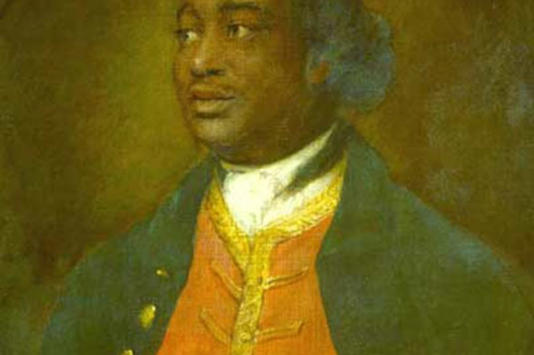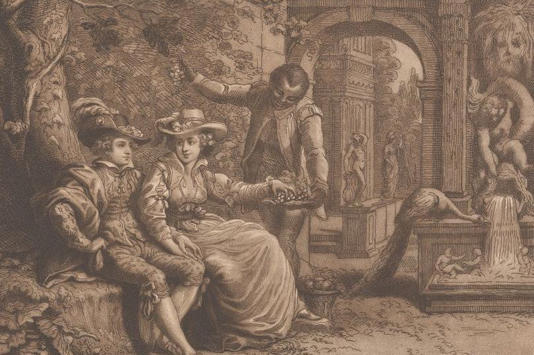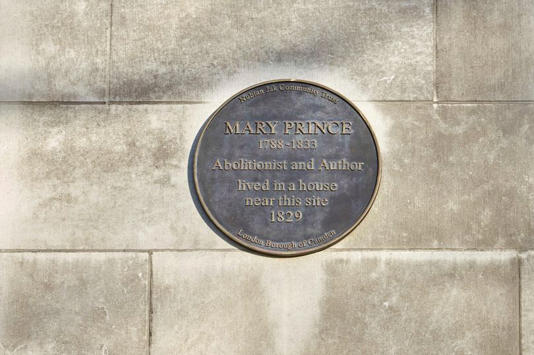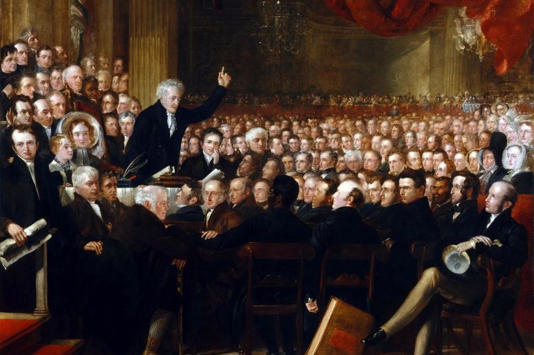The UK's abolition of slavery 290 years ago helped turn the tide on one of humanity's worst crimes - and Black British men and women played a vital role in getting it done.
The Transatlantic slave trade was the largest forced migration in human history, and inflicted a devastating legacy on Africa, the Caribbean and the Americas that is still felt today.
Britain was the second largest slave trading nation in Europe, and many wealthy people at home profited from the transport and plantation of slaves to the New World. By the late 17th century opposition to slavery was starting to build within the UK, and the Slavery Abolition Act was passed in 1833, finally banning the practice throughout the British Empire.
While political figures such as William Wilberforce have since gone down in history for having the law passed against fierce opposition, the important contributions of Black people have too often been forgotten in the story.
As part of our series this Black History Month, here are some of the Black British people who helped bring an end to slavery:
Olaudah Equiano
Olaudah Equiano (also known as Gustavus Vassa) was born in Igboland, now Nigeria, in 1745, and would go on to be one of the most prominent figures in the Black abolitionist movement. Captured from his village and tragically sold into slavery at the age of just 11, he was transported to the West Indies before he was later taken to Virginia. Olaudah was forced to work under multiple slave owners in North America, and eventually purchased his own emancipation at age 21 in 1766, when he went to live in Britain.
In London he became an leading anti-slavery campaigner, campaigning passionately against the cruel practices of British slavers in Jamaica. He became leader of the Sons of Africa group, which was made up of freed Africans living in London. His autobiography detailing his life's experiences, The Interesting Narrative of the Life of Olaudah Equiano, proved to be hugely popular upon release in 1789, and inspired generations of freed slaves to pen their own stories.
Olaudah worked closely with leading anti-slavery allies in Parliament before his death in 1797, giving the movement great momentum that led to the passing of the Slave Trade Act 1807 a decade later. This act prohibited the trading of slaves in the British Empire.
Ignatius Sancho
Born on a slave ship in 1729, Ignatius Sancho was sold into slavery the Spanish colony of New Granada, and was brought to live with a family in Greenwich, London as a young child. He later fled the home to find work as a butler, and eventually set up his own shop in Mayfair. Ignatius rose to become well-known figure in the capital, writing various essays and books. As a landowner, he became the first known British African to vote in a UK election in 1774.
He was also a vocal supporter of the anti-slavery movement, and helped persuade MP Charles James Fox to push forward with the abolitionist cause in the House of Commons. After his death in 1780 his collected letters were published in a book, which quickly became a best seller.
Ottobah Cugoano
Ottobah Cugoano was born in Ajumako, a cosatal town in Ghana. He was playing with his friends in a field in 1770 when he was captured by a group of native people and sold on to Europeans for slavery, later recalling how his price was 'a gun, a piece of cloth, and some lead'.
After being put in a slave-gang on plantations in the Caribbean for two years, Ottobah was taken to England by slave owner Alexander Campbell to work as his servant, and was sent for schooling. Ottobah would go on to use his education to write letters to newspapers and prominent political figures and demand the freedom of enslaved people. A prominent figure in London's African community, one of his achievements included working at speed to stop a ship carrying Harry Demane from leaving port, a man who was destined to be sold into slavery in the West Indies.
In his then-radical 1787 book Thoughts and Sentiments, Ottobah became the first African to publicly demand the total abolition of the slave trade and the freeing of slaves. One memorable line reads: "It does not alter the nature or quality of a man, whether he wears a black or white coat – whether he puts it on or strips it off, he is still the same man."
Mary Prince
Mary Prince was born into slavery in Bermuda in 1788, and was sold with her mother to Captain Darrel Williams shortly after. Mary suffered harsh treatment and abuse from the Williams family and multiple owners for most of her life, causing her to develop rheumatism and severe skin complaints. She accompanied her last owner, John Wood, on his move to England in 1828, where she found refuge with the Anti-Slavery Society in London.
Her book The History of Mary Prince: A West Indian Slave Related by Herself, was published in 1831 - three years before the Abolition of Slavery Act forbade the practice of slavery. Telling her story in unflinching detail, it provided a hugely important first-person account of slavery's brutality, and was so popular that the publisher had to print an entire new setof copies within only six months of its release. It also alerted the British public to the mistreatment of female slaves, which had previously been little discussed.
Louis Celeste Lecesne
Born a free man in the Carribean, Louis Celeste Lecesne was deported from Jamaica with accomplice John Escoffery by the Duke of Manchester in 1824. The pair had been actively involved in the 'free coloureds' movement in what was then a British colony.
Upon reaching England, Louis' case was taken up by high-profile abolitionist Stephen Lushington, who spoke of his treatment in the House of Commons. A key ally, Mr Lushington also helped him win in a libel case, after a book described Louis and Mr Escoffery as being guilty of a guilty of a criminal conspiracy back in Jamaica. He would go on to become a well-known abolitionist figure in 19th century Britain, serving on the board of the Anti-Slavery Agency, and made history in 1840 when he attended the first World Anti-Slavery Convention in London. Story by Benedict Tetzlaff-Deas, Mirror









